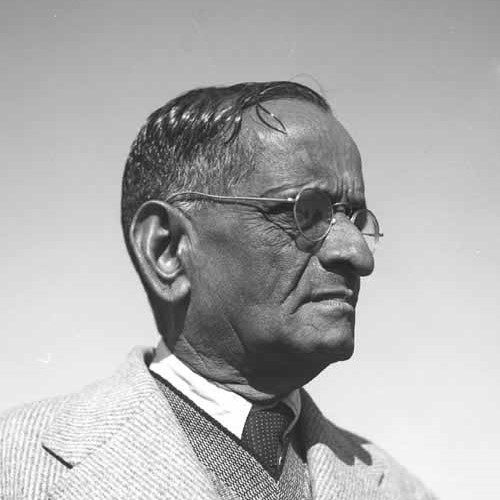Early Life
Narasimha Gopalaswami Ayyangar was born on 31 March 1882 in Tanjore, Madras. He studied at the Wesley School and later at Presidency College, Madras. In 1905, he joined the Madras Civil Service and served in several posts including District Collector and Member of the Board of Revenue.
Role in India’s Independence Movement
Ayyangar made a name for himself as an able administrator. His contribution to politics started with his appointment as the Prime Minister of Kashmir in 1937, just after his retirement from the Madras Civil Services. Apart from his interest in education, industry and rural development, he is also remembered for his reforms in the Forest Department and the tourism industry of Kashmir.
Ayyangar was elected to the Council of States in 1943, where he served until 1947. During his term, he was the Chairman of the ‘Committee for the Indianization of Army’ and co-authored the Sapru Committee Report on constitutional reforms.
Contribution to Constitution Making
Ayyangar was elected to the Constituent Assembly by the Madras Assembly. He was part of the seven-member Drafting Committee, making him one of the key architects of the Indian Constitution. He was also charged with drafting Article 370, which defined the special relationship of the state of Jammu and Kashmir with the Indian Union.
Later Contributions
Ayyangar served as a minister without any specific portfolio in Jawaharlal Nehru’s cabinet between 1947-48. In 1948, he headed the delegation that presented India’s case at the United Nations in the persistent dispute over Kashmir.
Under his leadership as the Minister for Railways and Transport from 1948 to 1952, the Indian Railways experienced remarkable growth and development in services and equipment. The regrouping of the Indian Railways into six zonal systems was his brainchild leading to the Railways reporting surplus earnings at this time.
The final post held by him was that of Defence Minister from 1952-1953. In 1952, he was appointed India’s representative in the ongoing negotiations and discussions on Kashmir at the Geneva talks.
Ayyangar died in Madras on February 10, 1953 at the age of 71.
Key Writings
Ayyangar’s key publication was the “Report on Reorganization of the Government Machinery“, published in 1949. It contributed to the formation of the Defence Committee, the Economic Committee, the Parliamentary and Legal Affairs Committee, and the Ad Hoc Administrative Organization Committee by the Union Government.
- Gopalaswami Ayyangar explained the provision of the promulgation of ordinances by the President when the Parliament is in the recess to the Constituent Assembly. He also moved the provision of the establishment of the Supreme Court.
- He also participated in deliberations on the status and applicable of certain Articles in the Constitution to the state of Kashmir.
- He made important interventions while deliberating on the nature of a federation, and the power dynamic and its distribution between the centre and the state.
- His most important intervention was to elaborate on the status of Kashmir and suggested that Kashmir be called Jammu & Kashmir as he felt this name represented the state better.

